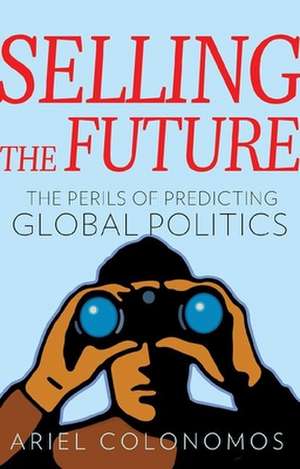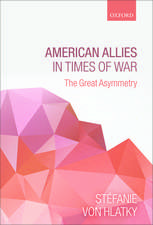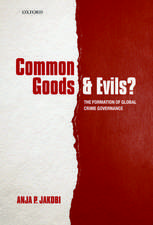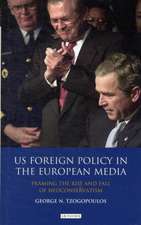Selling the Future
Autor Ariel Colonomos Traducere de Gregory Elliotten Limba Engleză Hardback
In his investigation of the paradoxes of forecasting, Ariel Colonomos interrogates today's knowledge factories to reveal how our futures are shaped by social scientists, think tanks and rating agencies. He explains why conservative and linear predictions prevail, and why the future, especially when linked to national interest, reflects a systematic search for stability. The notion of a globalized world whose main characteristic is speed, and where predictions have accelerating, self-fulfilling effects, is obsolete. Those who are supposed to know, reassure those who are supposed to act. Their preferences converge, and thus the industry of the future has a decelerating effect on world politics. These 'lords of knowledge' reinforce pre-existing beliefs, create expectations about the future, while obstructing its vision when -- inevitably -- it diverges from its orderly path.
| Toate formatele și edițiile | Preț | Express |
|---|---|---|
| Hardback (2) | 221.16 lei 3-5 săpt. | |
| C Hurst & Co Publishers Ltd – 6 iul 2016 | 221.16 lei 3-5 săpt. | |
| Oxford University Press – | 306.46 lei 3-5 săpt. |
Preț: 306.46 lei
Nou
Puncte Express: 460
Preț estimativ în valută:
58.65€ • 63.68$ • 49.26£
58.65€ • 63.68$ • 49.26£
Carte disponibilă
Livrare economică 01-15 aprilie
Preluare comenzi: 021 569.72.76
Specificații
ISBN-13: 9780190603649
ISBN-10: 019060364X
Dimensiuni: 145 x 218 x 23 mm
Greutate: 0.41 kg
Editura: Oxford University Press
ISBN-10: 019060364X
Dimensiuni: 145 x 218 x 23 mm
Greutate: 0.41 kg
Editura: Oxford University Press
Notă biografică
Ariel Colonomos is Senior Research Fellow, CERI/CNRS, Paris.
Descriere
Descriere de la o altă ediție sau format:
A cautionary investigation of the global futures business - political risk, investment funding, think tanks - and how its predictions distort our understanding of the world we live in
A cautionary investigation of the global futures business - political risk, investment funding, think tanks - and how its predictions distort our understanding of the world we live in


















